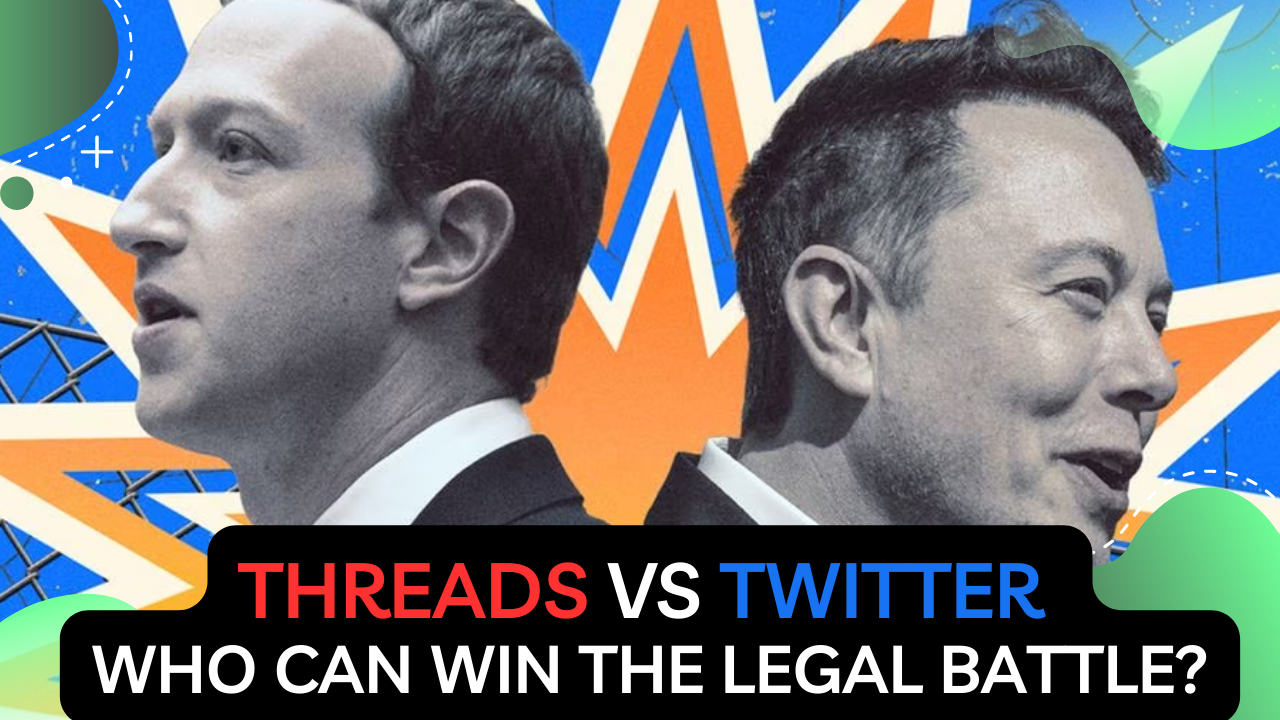I. Introduction
In the rapidly shifting terrain of social media, where platforms are perpetually engaged in a battle of innovation and supremacy, a fresh legal confrontation is emerging. Twitter, a veritable giant in the sphere of social media, has raised the specter of legal action against Meta Platforms, the parent company of Facebook and Instagram, over its newly minted Threads platform. This impending lawsuit could have profound implications for the tech industry, potentially redefining the landscape of social media and the enforcement of intellectual property rights. This article aims to provide a comprehensive analysis of the unfolding situation, scrutinizing the features and benefits of the Threads platform, and discussing the increasingly crucial role of intellectual property rights in the tech industry.

II. Background on Twitter and Meta
Twitter and Meta are two of the most formidable players in the social media arena. Twitter, celebrated for its real-time updates and microblogging features, has been a dominant force in the social media landscape for well over a decade. Meta Platforms, formerly known as Facebook Inc., owns and operates Facebook, Instagram, and WhatsApp, three of the world’s most popular social media platforms, each boasting billions of users worldwide.
The genesis of the current legal dispute lies in the recent launch of Meta’s Threads platform. Threads, designed to compete directly with Twitter, is leveraging Instagram’s massive user base to gain a foothold in the market. With over 30 million sign-ups in a short span, Threads has made a promising start, indicating a potential shift in the social media landscape.

III. Twitter’s Allegations against Meta
Twitter’s legal counsel, spearheaded by Alex Spiro, sent a strongly worded letter to Meta’s CEO, Mark Zuckerberg, accusing Meta of trade secret theft and misuse of confidential information. The allegations are rooted in Meta’s hiring of former Twitter employees who, according to Twitter, had access to Twitter’s trade secrets and confidential information. Twitter has demanded that Meta take immediate steps to cease the use of any Twitter trade secrets or confidential information, a move that underscores the seriousness of the allegations.

IV. Meta’s Response
In response to Twitter’s allegations, Meta has categorically denied any wrongdoing. Meta spokesperson Andy Stone clarified that no one on the Threads engineering team is a former Twitter employee. Furthermore, a former senior Twitter employee confirmed that they were not privy to any information about former Twitter staff working on Threads. This denial raises questions about the veracity of Twitter’s claims and sets the stage for a potentially protracted legal battle.

V. Intellectual Property Law Expert Opinions
Experts in intellectual property law have weighed in on the situation. They suggest that for Twitter to successfully press a trade secret theft claim against Meta, they would need to provide much more detail than what is currently in the letter. Companies alleging trade secret theft must demonstrate that they made reasonable efforts to protect their corporate secrets, often revolving around secure systems that were circumvented in some way. This could involve showing that they had non-disclosure agreements in place with employees or that they had robust security measures to protect their intellectual property.

VI. The Implications for the Tech Industry
This legal battle underscores the intense competition in the social media market and the significance of protecting intellectual property rights. As social media platforms continue to evolve and compete, issues of intellectual property rights and trade secrets will become increasingly important. The outcome of this case could set a precedent for how such disputes are handled in the future, potentially influencing the strategies of tech companies when it comes to protecting their intellectual property. This could lead to more stringent hiring practices, more robust security measures, and a heightened focus on intellectual property rights in the tech industry.
VII. Conclusion
The legal battle brewing between Twitter and Meta over the Threads platform is a significant event in the tech industry. It highlights the importance of protecting intellectual property rights and the fierce competition in the social media market. As the situation continues to unfold, it will be fascinating to see how this legal battle develops and what implications it will have for the tech industry at large. The outcome could shape the future of social media, influence how companies protect their intellectual property, and redefine the landscape of the tech industry.
